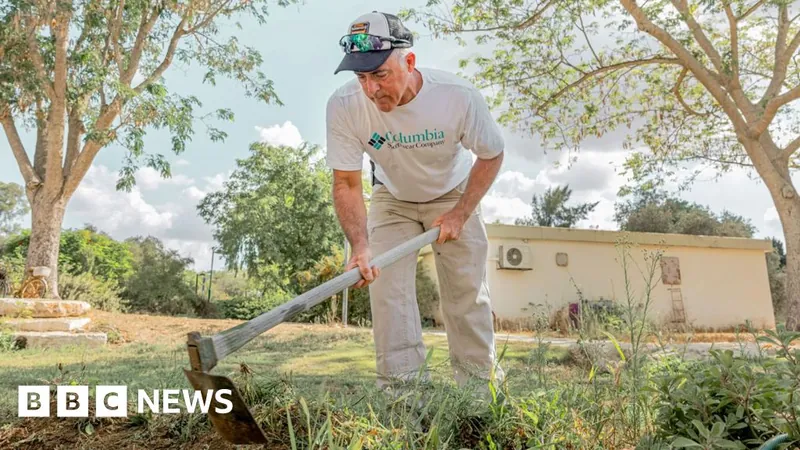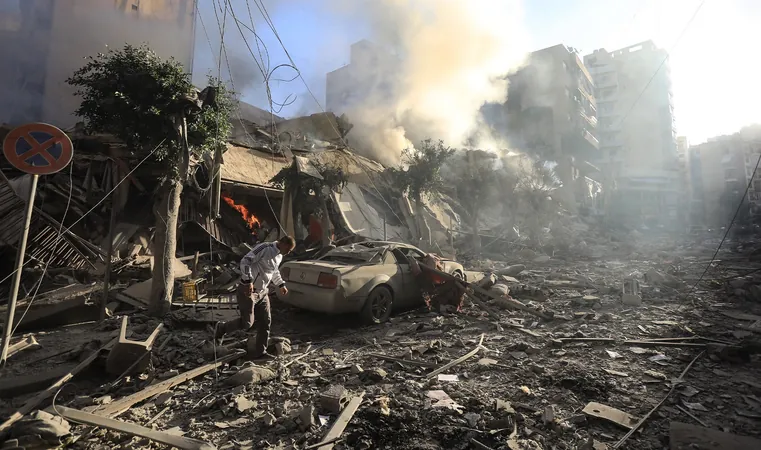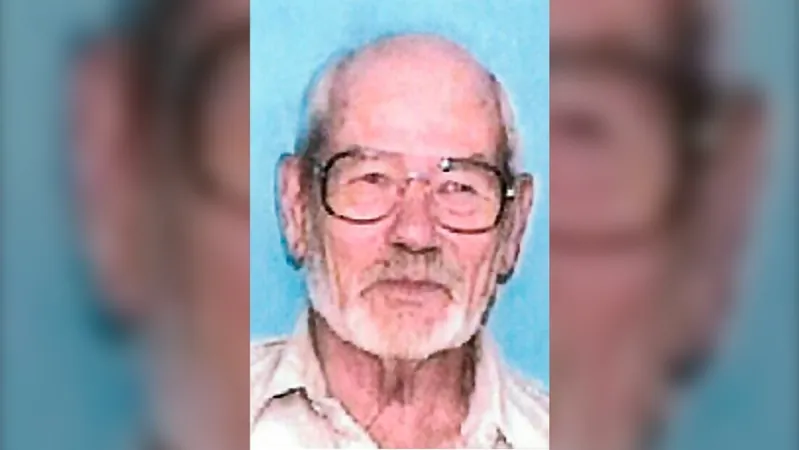
Resilience Amidst Ruins: The Struggle for Kibbutz Be'eri's Future After Tragedy
2024-10-05
A year after the devastating attack by Hamas that left 101 people dead in Kibbutz Be'eri, the once vibrant community is grappling with profound loss and the uncertainty of rebuilding. The quiet streets, punctuated by the distant sounds of air strikes, are now reminders of a horrific past.
Survivor Simon King, tending to the parched earth just a few meters from a burnt house, reflects on the unthinkable violence that shattered their lives. On October 7th, a well-coordinated assault from Hamas brought chaos; homes were set ablaze, and dozens were taken hostage — leaving scars that will take generations to heal.
Be'eri was known for its camaraderie, where neighbors were akin to family, living and working closely together in a collective environment. However, the trauma of the attacks has splintered this tight-knit community both psychologically and physically. While only 10% of the residents were killed, the impact resonates throughout the kibbutz, with many survivors unable to face returning permanently, opting instead to live temporarily in nearby accommodations.
As Dafna Gerstner recalls the day of horror spent trapped in a safe room, the devastation becomes palpable. "Every direction you look, there’s someone you know who lost family,” she shares, grappling with the reality that memories are woven into the very fabric of their surroundings. The remains of burnt homes and vacant lots are scattered throughout the kibbutz—a haunting reminder of lives interrupted.
The emotional toll has extended beyond physical destruction. The once-bustling daycare and play areas now stand eerily silent, while tours of the kibbutz have begun to attract visitors seeking to understand the tragic events—an experience filled with mixed emotions for the volunteers coordinating these visits.
Simon and Rami, two survivors leading these tours, view their efforts as a necessary step to ensure the memories of the fallen live on. “It’s heavy, but it’s crucial. We can’t forget,” Simon states, despite the emotional burden it places on him.
In the aftermath, only about half of the survivors from Be'eri have returned to work, resulting in a shift in the community dynamics historically rooted in collective effort. As a response to the trauma, many residents are seeking gun licenses, a stark reminder of the new reality they face, driven by fear and the yearning for security.
The kibbutz, founded in 1946, was known for its leftist values and a commitment to peace, with past initiatives that included supporting Palestinian workers and facilitating medical care for Gazans. However, the narrative has shifted dramatically in the wake of the attack. Expressions of anger and calls for retribution have emerged among residents, complicating the once fervent hopes for coexistence.
The community, now seemingly divided, also struggles with the worry of what the future holds. The impact of the October attack has heightened fears, leading to an atmosphere of distrust and despair. “We were always safe here, but that belief has been shattered,” shares resident Shir Guttentag, who remains haunted by the traumatic events.
As the process of moving to temporary prefabricated homes at Kibbutz Hatzerim unfolds, approximately 70% of survivors have made the shift. For some, this relocation offers a new start; for others, it feels like an unwelcome reminder of lost safety and stability. Shir expresses the conflicting emotions: excitement and anxiety about adjusting to a new life marked by profound loss.
Amid the pain, a flicker of hope persists. The kibbutz has initiated the rebuilding process, and the promise of therapy through repair and renewal provides a semblance of normalcy. Community members have gathered to support one another, forming a network of resilience amidst grief.
However, questions linger as individuals wrestle with their future roles in a community that once defined their identity. “We’re not whole, but we will be,” Shir encourages, optimistic that time may slowly mend the fractures wrought by tragedy.
Residents of Be'eri not only face the challenge of rebuilding homes and lives but also confront a future layered with complexities. As they navigate the scars of their past, their stories exemplify remarkable resilience in the face of adversity, echoing a determination to reclaim their narrative and hope for a peaceful tomorrow, even as they navigate the shadows of what was lost.









 Brasil (PT)
Brasil (PT)
 Canada (EN)
Canada (EN)
 Chile (ES)
Chile (ES)
 España (ES)
España (ES)
 France (FR)
France (FR)
 Hong Kong (EN)
Hong Kong (EN)
 Italia (IT)
Italia (IT)
 日本 (JA)
日本 (JA)
 Magyarország (HU)
Magyarország (HU)
 Norge (NO)
Norge (NO)
 Polska (PL)
Polska (PL)
 Schweiz (DE)
Schweiz (DE)
 Singapore (EN)
Singapore (EN)
 Sverige (SV)
Sverige (SV)
 Suomi (FI)
Suomi (FI)
 Türkiye (TR)
Türkiye (TR)